Table of Contents
During the hot times of summer season, air conditioning is necessary at homes. However, have you ever guessed how it works inside large commercial buildings? All the credit for that goes to commercial air conditioning. We always need a proper commercial air conditioning during the summer season. Especially to all the people that are working in offices during the peak afternoon hours. An effective air conditioning system is necessary for cooling extensive industrial facilities. AC units can provide comfort in these expansive spaces and are also essential for equipment upkeep, worker safety, and productivity optimization. Now, these systems help prevent machinery overheating, minimize downtime, and improve worker comfort by effectively controlling the temperature and air quality. Purchasing the appropriate commercial air conditioning system is a wise decision that improves overall operational efficiency. But first we need to learn about these large ac systems and understand how they work.
What is Commercial Air Conditioning?
It getting hot, hot and hotter this year; its all the doing of global warming as you all must know. But installing the right a/c unit can really make a difference. Believe me! BUT What is the definition of these commercial ac systems exactly? Systems intended to cool, heat, and ventilate expansive commercial environments, such as office buildings, retail malls, and industrial complexes, are referred to as commercial air conditioning systems. These systems control humidity, air quality, and temperature to provide a comfortable interior atmosphere. Commercial air conditioning systems are crucial for business buildings to remain relaxed, energy-efficient, and productive. Various commercial HVAC system types, such as single split systems, multi-split systems, and VRV systems, are designed to address the demands of different commercial property and environments. The building’s size, use, and cool air needs determine which commercial air conditioning system is best. Let us take a look at some of the main components of commercial ac units.
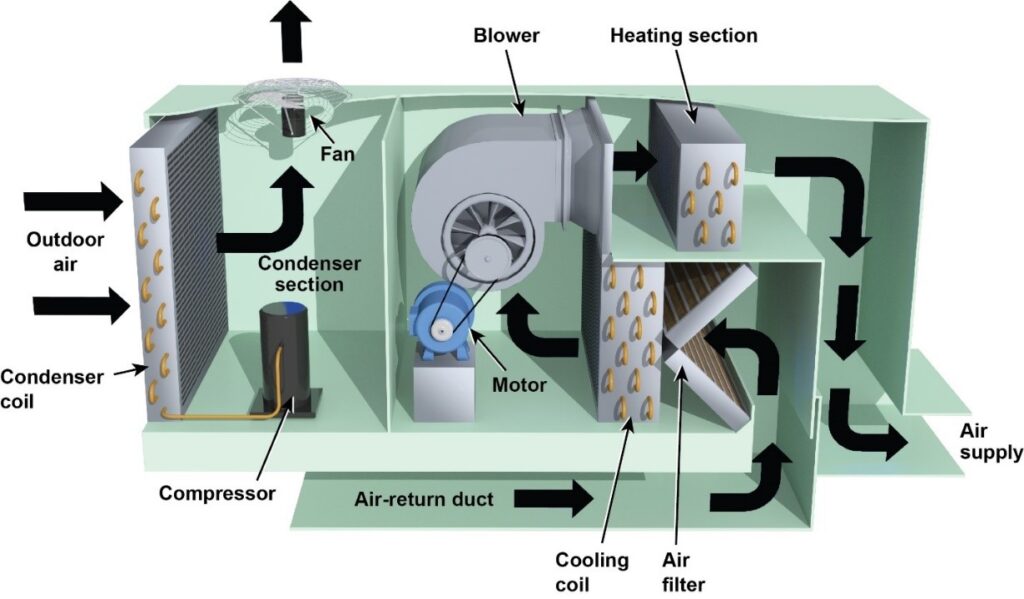
The Main Components
Commercial air conditioning systems consist of the following primary parts to ensure maximum comfort and efficiency;
- Air Conditioner Units: They can manage higher cooling demands and are available in various forms, including VRF systems and rooftop units for warm air.
- Air Ducts: They maintain the building’s temperature by distributing conditioned air.
- Thermostats and Controls: Precise temperature regulation is achieved using sophisticated controls, such as programmable and smart thermostats.
- Ventilation Systems: To preserve interior air quality, these systems remove contaminants and deliver fresh air.
- Features for Energy Management: The systems include advanced efficiency controls, energy recovery systems, and variable-speed compressors.
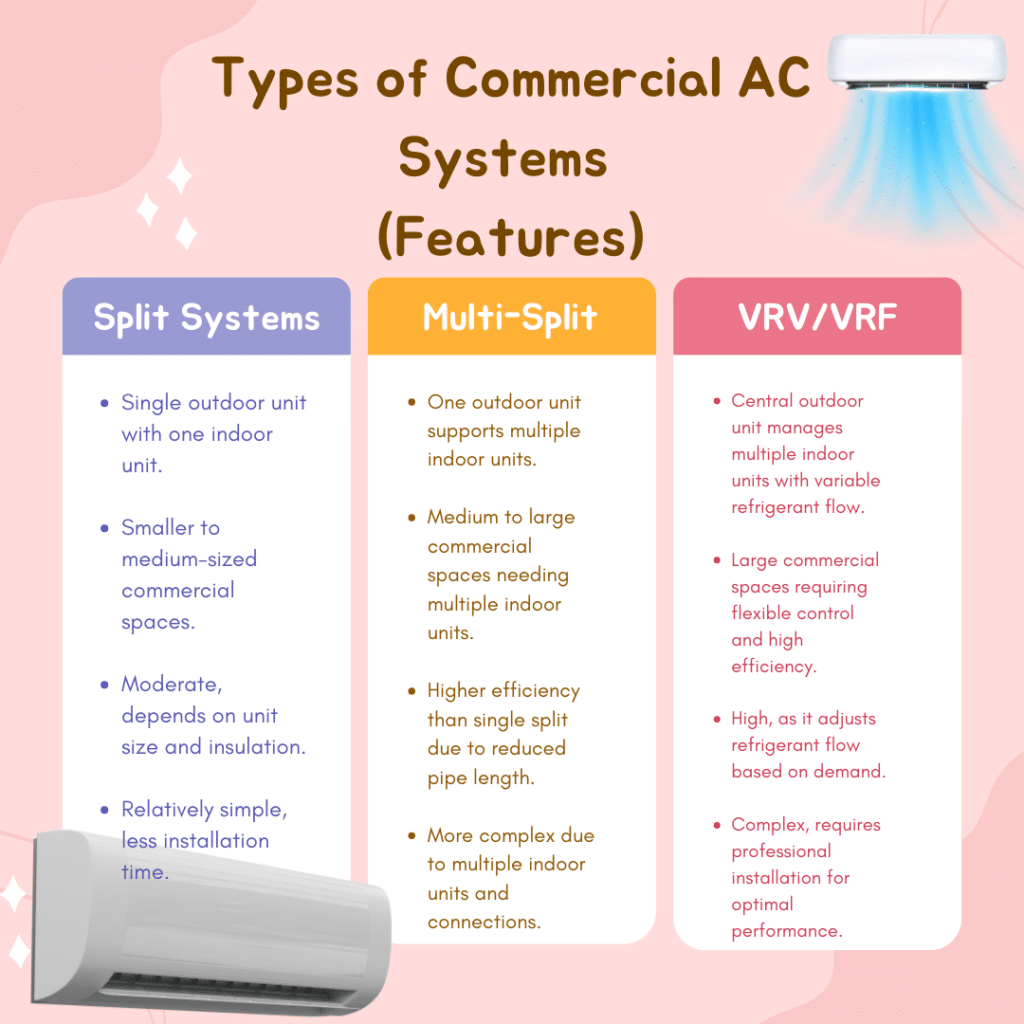
A Look at Types of Commercial HVAC Systems
There are several varieties of commercial HVAC systems, each with a distinct purpose in mind;
HVAC (Central Air Conditioning)
- It even distributes cooling throughout huge areas.
- It is ideal for structures with several stories and rooms.
Ductless, Mini-Split Air Conditioner
- It is ideal for locations without ductwork already in place.
- It provides energy-efficient, zone-based cooling that is adaptable.
Multi-Split Air Conditioner
- Connects multiple indoor and outdoor units.
- Allows for the use of fewer outdoor units to cool numerous zones.
VRV and VRF
- Provides various zones with accurate heating and cooling.
- Extremely energy-efficient and able to alter refrigerant flow in real time.
Chillers
- It is ideal for crucial applications and large-scale cooling requirements.
- Cools liquids or water to preserve ideal interior temperatures.
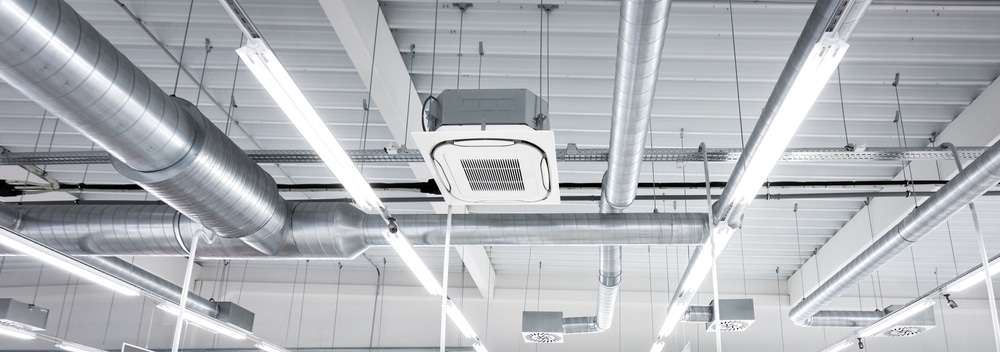
Energy Efficiency in Commercial Cooling Units
When selecting business portable air conditioning systems, energy efficiency is crucial. Systems that are efficient reduce operating expenses and promote environmental sustainability. Let take a look at some of these essentials.
SEER (Seasonal Energy Efficiency Ratio)
- Calculates the cooling output compared to the energy used.
- Higher SEER ratings indicate more significant efficiency.
Energy Star Certification
- Satisfies the stringent EPA efficiency standards.
- Denotes exceptional energy performance.
Regular Maintenance
- Keeps system lifespan extended and efficiency intact.
- Avoids energy waste and expensive repairs.
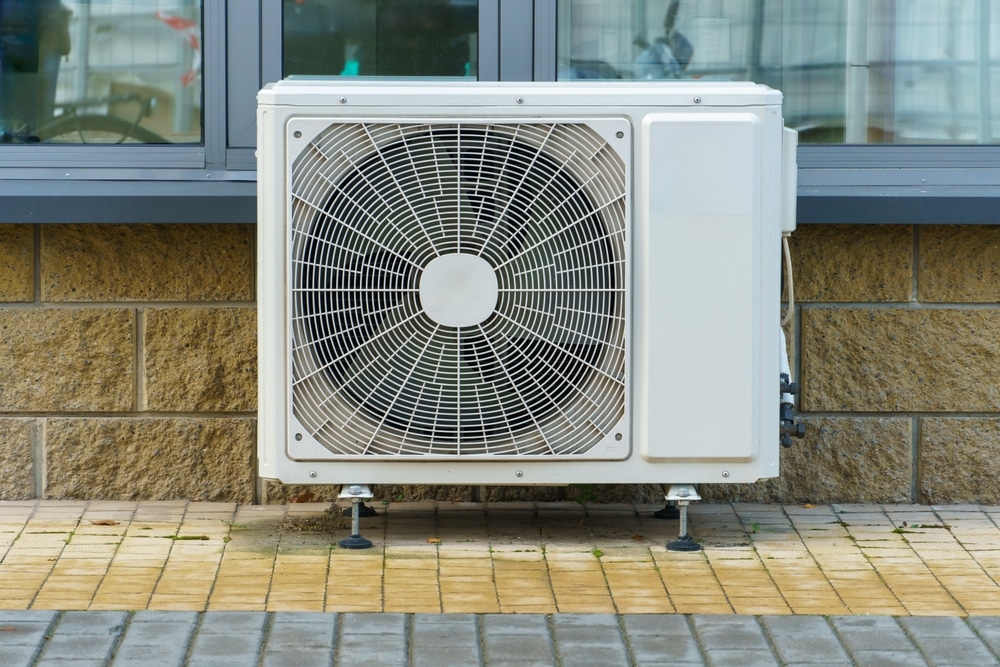
Some Key Considerations for Commercial A/C Systems
When planning a commercial air conditioning system, keep the following in mind;
- Zoning: Promotes comfort and energy efficiency by allowing distinct sections to be controlled independently. Just like your commercial kitchen cooling systems require.
- Load Calculation: Precise computations guarantee the system is appropriately sized, preventing inefficiencies.
- Maintenance: Regular care is necessary to ensure a system’s longevity and effectiveness.
Zoning, load estimates, and maintenance are essential to maintaining your business HVAC system’s best possible performance and economic viability. Taking these precautions may create a cozy and energy-efficient space without spending extra money. Also, don’t forget to set your AC to the right temperature!
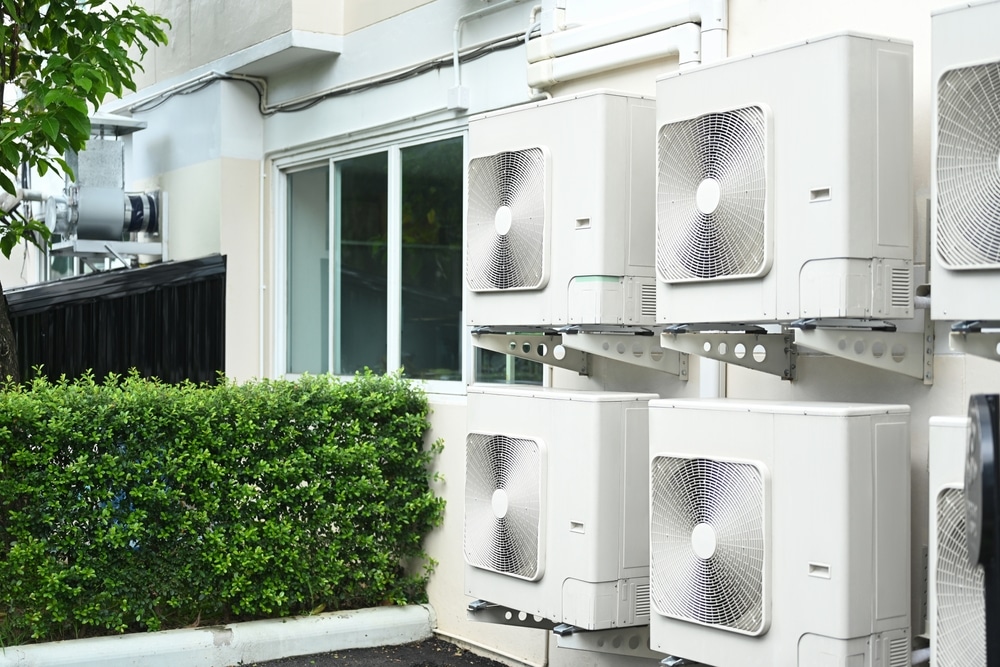
Final Thoughts
Summing up, choosing for the appropriate commercial air conditioning system is essential for maintaining a comfortable environment in your organization. Every aspect counts, from comprehending the primary parts like compressors and evaporators to investigating different HVAC systems. Commercial cooling units’ energy efficiency is more than just a catchphrase; it’s crucial in lowering operational expenses and environmental effects. Considering system capacity, efficiency ratings, and installation requirements is essential when choosing the optimal AC type for commercial applications. Consider elements like system size, upkeep requirements, and general dependability.
In conclusion, by keeping these crucial factors in mind, you can ensure that the cooling system you choose for your business space is wise, effective, and affordable. Enjoy the cool breeze of your air conditioner!
